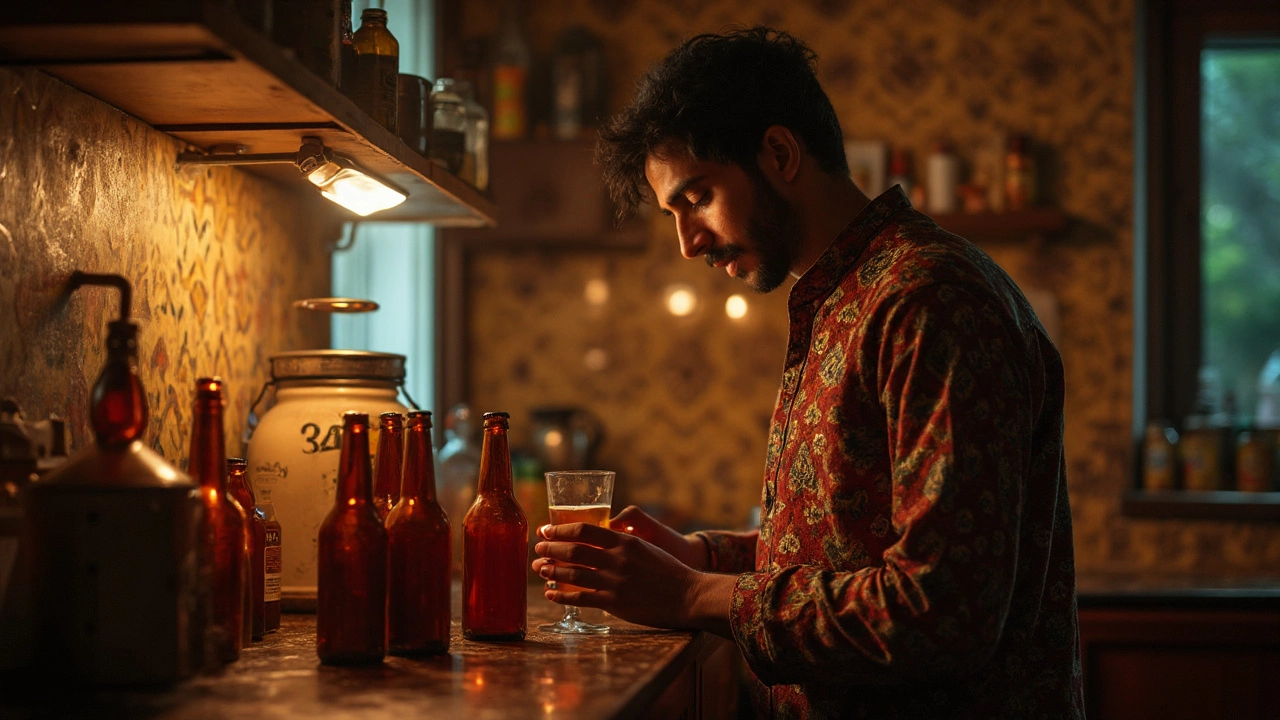Storage Guide: Keep Coffee, Tea, Wine & Spirits Fresh
If you love a good cup of coffee or a glass of wine, the way you store those drinks matters more than you think. A few easy habits can lock in flavor, stop spoilage, and save you money. Below are the top tricks for everyday storage that work for most home drink lovers.
Coffee & Tea Storage Basics
Start with the container. Air and light are the biggest enemies of beans and leaves, so choose a jar with a tight‑fit lid and keep it in a dark place. For coffee, avoid the fridge – the temperature swings cause moisture to build up, which makes beans go stale faster. Instead, store beans in a cool, dry pantry and grind only what you need right before brewing.
Tea is a bit more forgiving, but the rule stays the same: keep it sealed, away from humidity and strong odors. Green and white teas benefit from refrigeration if you buy them in bulk, but make sure the tin or bag is completely airtight. When you pull a tea bag out of a fridge, let it reach room temperature before steeping to avoid a cold shock that changes the flavor.
One quick tip that many overlook is to keep a small desiccant packet (the little silica gel packets you find in shoeboxes) in your coffee or tea container. It soaks up excess moisture without affecting taste. Replace it every few months, and you’ll notice a longer shelf life.
Wine & Spirits Storage Tips
Wine is the most temperamental of the lot. The golden rule: store bottles on their side if they have a cork. This keeps the cork moist, preventing air from sneaking in. Keep the wine rack in a room that stays around 55°F (13°C) and out of direct sunlight. A closet or a dedicated wine fridge works best; a regular kitchen fridge is too cold and dries out the cork.
For bottles with screw caps, orientation doesn’t matter, but you still want a stable, cool spot. Avoid vibrations from appliances or traffic—shaking can disturb the delicate balance of flavors. If you can’t invest in a wine fridge, a dark cupboard with a consistent temperature is the next best thing.
Spirits like vodka, whiskey, and gin are far more forgiving. They don’t age after opening, so you can store them wherever you like, as long as they’re away from direct sunlight. A pantry shelf is fine. However, keep the bottles upright to avoid any leaks from the seal and to keep the cap from loosening over time.
One common mistake is putting opened wine or spirits back in the freezer. Freezing wine can pop the cork, and while high‑proof spirits won’t freeze solid, the sudden temperature drop can affect the aroma. Stick to cool, steady storage instead.
Now you have a cheat‑sheet for all the drinks in your fridge, pantry, or bar. A tight lid, the right temperature, and keeping moisture out are the three pillars of good storage. Follow these steps and you’ll taste coffee that’s as fresh as the morning it was roasted, tea that bursts with its original notes, and wine that stays true to the winemaker’s intent. Cheers to better sipping without the waste!






Categories